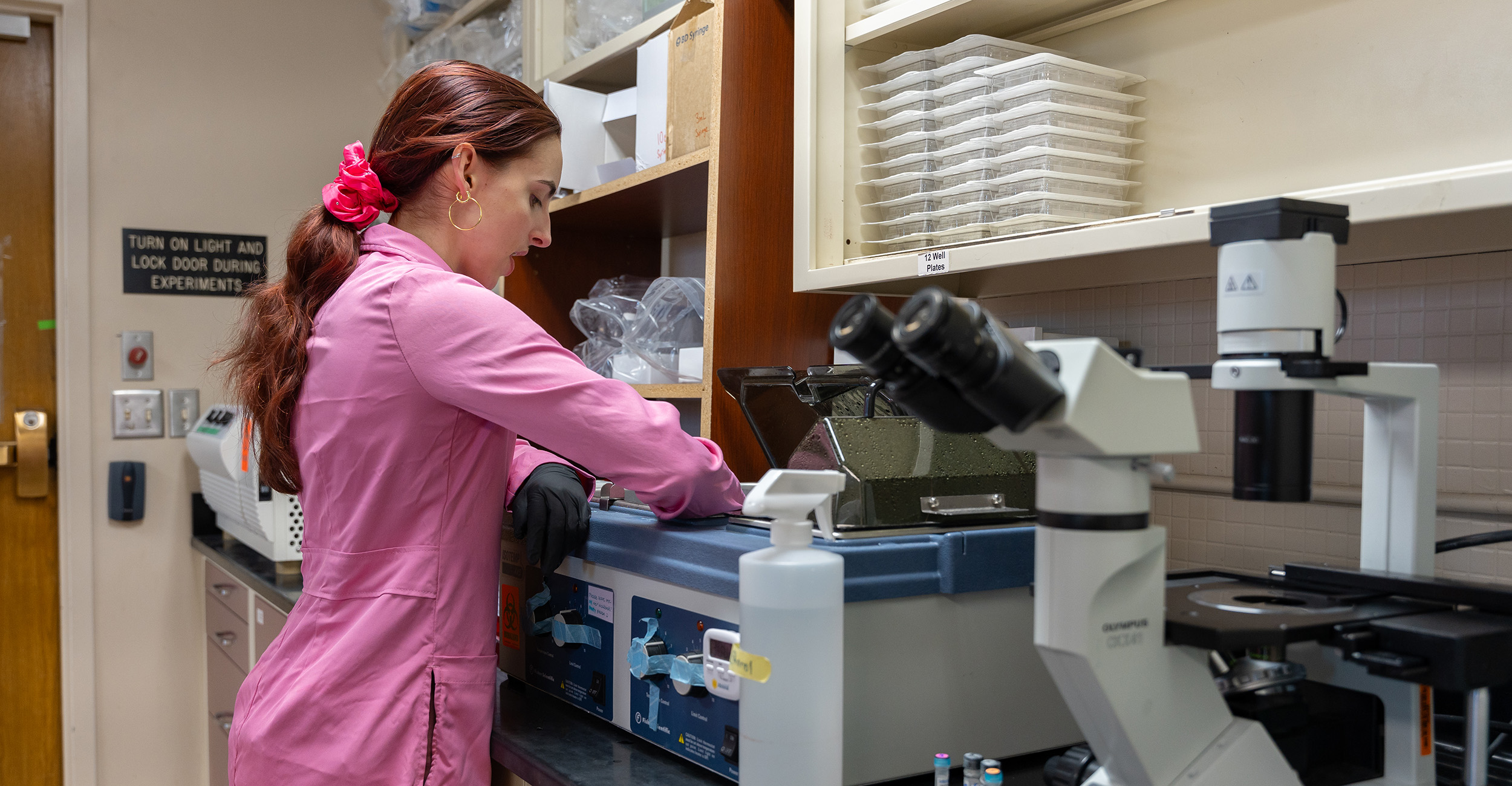
FFAR names OSU student to sixth cohort of veterinary fellows
Tuesday, July 30, 2024
Media Contact: Taylor Bacon | Public Relations and Marketing Coordinator | 405-744-6728 | taylor.bacon@okstate.edu
Today’s national shortage of large animal veterinarians poses a serious threat to the agriculture industry, especially in an animal health crisis that affects our food supply.
To attract and support veterinary students in their professional development, the Foundation for Food & Agriculture Research and the American Association of Veterinary Medical Colleges recently announced the sixth cohort of the FFAR Veterinary Student Research Fellowship .
The fellowship provides 15 students worldwide the opportunity to pursue research furthering global food security, sustainable animal production and environmental sustainability.
“FFAR prioritizes Strengthening the Scientific Workforce to address the accelerating and unprecedented global challenges facing the U.S. food and agriculture system,” said Nikki Dutta, FFAR scientific program officer. “We are proud to continue our partnership with the American Association of Veterinary Medical Colleges to offer veterinary students the research experience needed to adequately prepare them to address climate change, emerging infectious diseases, antimicrobial resistance and other issues that threaten sustainable food production.”
Fellows conduct their research with a qualified mentor at an AAVMC member institution in the U.S. The yearlong fellowship culminates with the Fellows presenting their research at the annual Veterinary Scholars Symposium, a national event attended by more than 700 veterinary students, as well as animal health researchers and leaders from top veterinary schools across the country.
Paige Johnson, Oklahoma State University College of Veterinary Medicine third-year student, was named a 2024 FFAR Vet Fellow. Johnson is the second student in OSU history to receive this prestigious award. Johnson is mentored by Dr. Rudra Channappanavar, assistant professor of veterinary pathobiology.
Johnson’s research is related to SARS-CoV-2, a coronavirus that causes COVID-19. As its variants can pass between animals and humans, Johnson is seeking to protect both humans and livestock by investigating how the virus and its variants spread and whether they can infect the cells of food animals. Her research aims to prevent virus transmission within and across species and maintain animal welfare.
